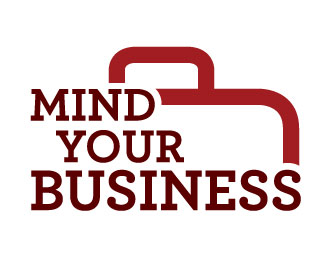Preventive Law: Helping your clients before push comes to shove

Karl A. Slaikeu.
Rare is the client who looks to litigators, alternative dispute resolution specialists or even corporate counsel as the “go to” persons for providing services that will prevent disputes. Most attorneys serve their clients by representing them in disputes that are already or soon to be underway, with a focus on billable negotiation, mediation, arbitration or litigation representation. When it comes to employee and manager education, skills training and systemic dispute prevention, business leaders look not to their attorney advocates but to a potpourri of human relations consultants, trainers and behavioral science experts.
And some attorneys think it should be kept that way. “If we really and truly prevent disputes,” the argument goes, “we may lose revenue and reduce the opportunities to represent clients (or even serve as neutrals) in formal processes such as mediation, arbitration and litigation.”
As an alternative to this conventional wisdom, this article argues that attorneys can draw on the precedent in (some) medical and (most) dental practices by offering billable services on both intervention (advocacy on cases) and prevention (consultation, education and skills courses, and dispute systems design).
Based on the premise that attorneys have unique knowledge grounded in their advocacy work, this article describes examples of prevention services and shows how attorneys can leverage their knowledge and expertise to achieve new revenue by helping clients before they find themselves in trouble.

Personal story
I write as a clinical-community psychologist who has practiced and written about mediation and dispute systems design topics for over 30 years. Collaborating with in-house counsel, my company’s early pilot projects led to a patent (United States Patent No. 6,856,984 B2) on a business method for hardwiring into organizational procedures a “preferred path” for saving money and increasing satisfaction in the resolution of employment and commercial disputes. This ultimately led to a string of reference clients whose law departments implemented custom “early resolution” systems: General Electric, Coca-Cola Enterprises, Shell Energy North America, Halliburton and others, with scattered health care, governmental and faith-based projects along the way.
The marketing pitch for new clients was straightforward: Companies need the protection of early resolution systems just as automobiles need the protection of airbags and seat belts.
Repeated contact with in-house counsel and defense and plaintiffs’ law firms led to a conclusion I was at first reluctant to acknowledge: Attorneys might be better positioned to provide these services than consultants from other disciplines, such as myself.
The argument went like this:
1. The bonding of attorneys and their clients during litigation can lead to trust (“she got us through hell”) that other professionals such as consultants, trainers and others can only dream about.
2. With deep knowledge of the anatomy of a lawsuit, attorneys are subject matter experts on the consequences of bad behavior, which earns them a special hearing from clients about how to “prevent” expensive disputes.
3. The attorney-client privilege provides a protective umbrella for any company that dares to look at the dark underside of company policy, and this protection is not available to nonattorney corporate consultants.
4. Many attorneys and paralegals have interests and skill sets (consulting, stand-up training, writing) that can be applied to dispute prevention service delivery.
5. Leveraging these interests and talent to offer prevention services can achieve new revenue, enhance the image of the practice of law and attract new clients.
6. All of which is to suggest that attorneys have an advantage over others in providing prevention services to corporate clients.
What are prevention services, and how do they generate revenue?
Sometimes referred to as “preventive law” and often linked to organizational risk management strategies, prevention services grow from two bodies of knowledge: the nature of disputes (about which attorneys are subject matter experts) and the organizational culture from which they emerge (about which attorneys can learn if they have templates for diagnosis of organizational deficits).
Growing from these “nature of disputes” and “organizational culture” dimensions, the literature describes three sets of billable services that can be applied to employment, commercial, partnership and outside-party topics.
• Consultation. Many attorneys already provide this service under the banner of being a “counselor at law.” With a view to identifying and analyzing individual and organizational topics before they rise to the level of litigation, the consultation skill set includes the ability to listen well, ask questions that elicit both facts and interests about multiple parties, brainstorm potential remedies and negotiate solutions that the client will implement. Nonattorneys provide these services as executive coaching, facilitation, organizational consultation and other labels.
• Education and skills training. Education includes video-based, virtual or in person events aimed at defining and promulgating a new or preferred organizational approach to “how we want to resolve potential disputes” involving employees, customers and partners. Skills training goes deeper than education (imparting new knowledge) to build behavioral capability to “act” in ways that resolve conflicts early, at the lowest possible level in organization. Presented via virtual or in-person formats, best practice skills training follows an experiential learning model that includes new knowledge and practice with feedback and application to real-life scenarios. Trainers and educators bill for their time, though the most lucrative contracts involve enterprisewide initiatives whereby the external trainer equips others (via train- the-trainer methods) to deliver courseware that is priced by volume, namely, the number of employees and managers who eventually will take the course.
• Dispute systems sesign. Best practice DSD delivered to client organizations includes assessment and consultation on organizational changes needed to “save people, time and money.” DSD efforts typically include enterprisewide education and skills training, and in some cases, the outsourcing of certain functions, such as organizational ombudsman. DSD can also include a full range of “upstream” interventions (e.g., internal facilitation/informal mediation on substantive topics well before they escalate to eternal mediation or arbitration).
Is this right for your firm?
Answers to the following questions will reveal whether prevention services are a good fit for your practice.
1. Do the following activities interest you: problem-solving, consultation, analysis of root causes of conflict and disputes, listening, reflecting, constructively confronting, writing, pitching an idea? If you answered yes to one or more, read on.
2. Who on your current team has talent for prevention work? Among your colleagues (attorneys and paralegals especially), what are their interests outside your law practice, from a former life or dreams for “self-actualization,” and might these be leveraged to help you offer prevention services?
3. Who might you partner with to deliver core prevention services? Do you know anyone who is already doing this type of work? Might you engage them to help you, removing the necessity to invent the wheel?
4. Which clients might you approach to open the door to new services? Any who either lost significantly in a big case or who survived one albeit at great expense might be candidates for a debrief on how to prevent future occurrences, and thereby strengthen the company.
5. What business structure best serves your new initiative? Could you add this to your list of services within your current practice? Or might you set up a separate business under a new name?
Bottom line
Prevention work adds new revenue that does not require a “body in the room, billing by the hour” to achieve it. Most important, by leveraging deep knowledge of cases and proximity to decision-makers, attorneys can position themselves on the side of promoting organizational health and wellness, thereby enhancing their persona as true and effective counselors at law.
Karl A. Slaikeu, PhD, is an internationally recognized psychologist, mediator, author and CEO of Blue Lion Conflict Solutions. With his attorney spouse, Diane W. Slaikeu, he lives in Austin, Texas.
Mind Your Business is a series of columns written by lawyers, legal professionals and others within the legal industry. The purpose of these columns is to offer practical guidance for attorneys on how to run their practices, provide information about the latest trends in legal technology and how it can help lawyers work more efficiently and strategies for building a thriving business.
Interested in contributing a column? Send a query to [email protected].
This column reflects the opinions of the author and not necessarily the views of the ABA Journal—or the American Bar Association.



